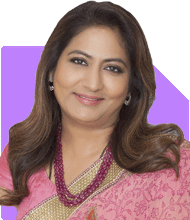Moneywize |174 Answers |Ask -Follow
Financial Planner - Answered on Mar 02, 2024

As part of a couple in our early 30s, along with our elderly parents, we have a combined annual income of Rs 1.08 crores. How can we collectively plan for both our retirement and the financial well-being of our parents in the long run?
1. Understand your financial situation:
Gather information about:
• Income: List down your combined annual income (Rs 1.08 crore) and any other sources of income like rental income or investments.
• Expenses: Track your monthly expenses for a few months to understand your spending habits.
• Debts: List down any outstanding debts like mortgages, car loans, etc., including your parents' debts if applicable.
• Retirement benefits: Check your eligibility and potential benefits from social security or employer-sponsored retirement plans.
• Parents' needs: Estimate your parents' current and future financial needs, including healthcare costs.
2. Set retirement goals:
• Desired retirement age: Decide when you and your partner wish to retire.
• Desired lifestyle: Determine the lifestyle you envision in retirement, considering travel, hobbies, and potential healthcare needs.
• Financial goals: Based on your desired lifestyle and life expectancy, calculate the estimated corpus (total sum) required for your retirement. Consider inflation while making these calculations.
3. Create a financial plan:
• Debt management: Prioritise paying off high-interest debts to free up future income for savings and investments.
• Budgeting: Create a budget that allocates funds for essential expenses, savings, and debt repayments. You can involve your parents in creating a budget for their expenses as well.
• Savings and investments: Explore various investment options like mutual funds, PPF (Public Provident Fund), or NPS (National Pension Scheme) based on your risk tolerance and investment horizon. Utilize tax-advantaged retirement accounts like 401(k)s or IRAs if available to you.
• Healthcare planning: Consider health insurance plans for yourselves and your parents to manage potential medical costs in the future.
4. Open communication and support:
• Discuss openly: Have open and honest conversations with your partner and parents about your financial situation, goals, and expectations. This fosters transparency and builds trust within the family.
• Seek professional guidance: Consulting a financial advisor can help you create a personalized plan considering your specific financial situation and retirement goals. They can also guide you on investment strategies and risk management.
Additional considerations:
• Government schemes: Explore government schemes for senior citizens like the Senior Citizen Savings Scheme (SCSS) or the Pradhan Mantri Jan Dhan Yojana (PMJDY) that may benefit your parents.
• Downsizing: Consider downsizing your living situation or exploring alternative housing options in retirement to potentially reduce living expenses.
• Part-time work: If feasible, consider continuing part-time work in retirement to supplement your income and maintain an active lifestyle.
Remember, this is a general framework, and it's crucial to tailor it to your specific circumstances. Consulting a financial advisor can provide personalised guidance and ensure your financial plan considers all the complexities involved.
You may like to see similar questions and answers below
Moneywize |174 Answers |Ask -Follow
Financial Planner - Answered on Feb 29, 2024
Ramalingam Kalirajan |7336 Answers |Ask -Follow
Mutual Funds, Financial Planning Expert - Answered on May 21, 2024
Ramalingam Kalirajan |7336 Answers |Ask -Follow
Mutual Funds, Financial Planning Expert - Answered on Jul 23, 2024
Ramalingam Kalirajan |7336 Answers |Ask -Follow
Mutual Funds, Financial Planning Expert - Answered on Oct 09, 2024
Ravi Mittal |475 Answers |Ask -Follow
Dating, Relationships Expert - Answered on Dec 26, 2024
Kanchan Rai |447 Answers |Ask -Follow
Relationships Expert, Mind Coach - Answered on Dec 26, 2024
Kanchan Rai |447 Answers |Ask -Follow
Relationships Expert, Mind Coach - Answered on Dec 26, 2024
Kanchan Rai |447 Answers |Ask -Follow
Relationships Expert, Mind Coach - Answered on Dec 26, 2024
Dr Nandita Palshetkar |36 Answers |Ask -Follow
Gynaecologist, IVF expert - Answered on Dec 26, 2024
Dr Nandita Palshetkar |36 Answers |Ask -Follow
Gynaecologist, IVF expert - Answered on Dec 26, 2024
Dr Nandita Palshetkar |36 Answers |Ask -Follow
Gynaecologist, IVF expert - Answered on Dec 26, 2024
Dr Nandita Palshetkar |36 Answers |Ask -Follow
Gynaecologist, IVF expert - Answered on Dec 26, 2024
Samraat Jadhav |2127 Answers |Ask -Follow
Stock Market Expert - Answered on Dec 26, 2024
Milind Vadjikar |800 Answers |Ask -Follow
Insurance, Stocks, MF, PF Expert - Answered on Dec 26, 2024



























